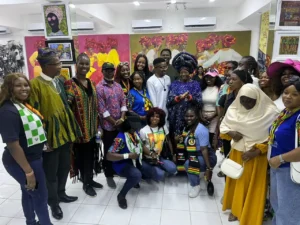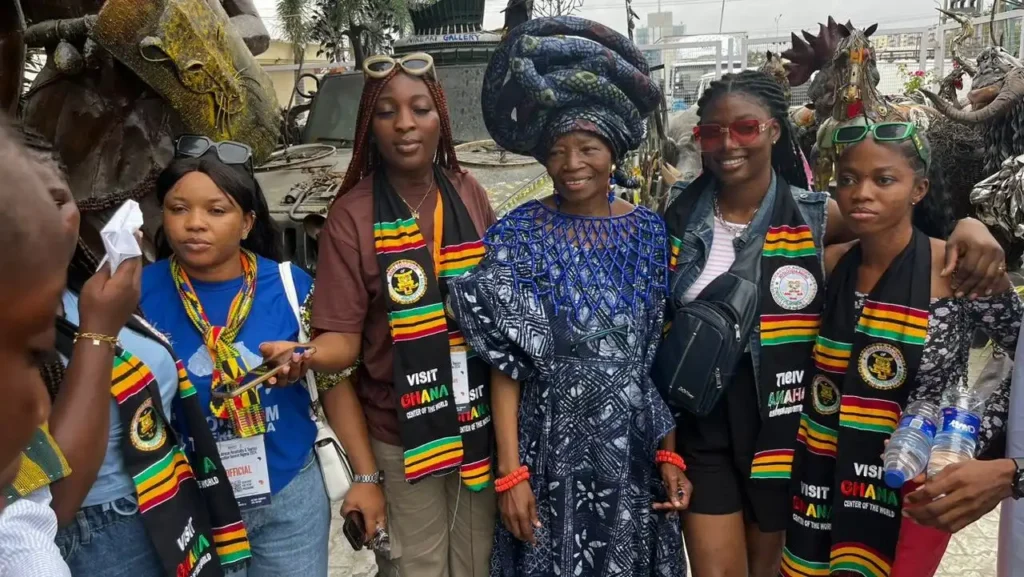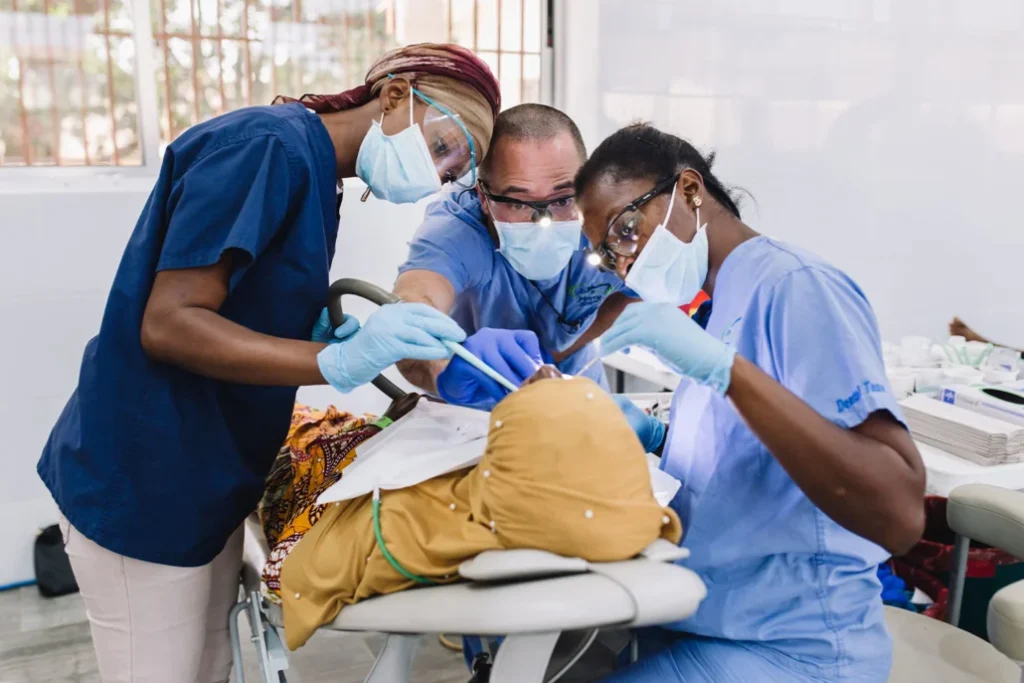Nigeria is once again stepping into the global spotlight as a top destination for tourism and education exchange, with the 2024 Africa Hospitality, Tourism, and Education Summit (AHTES) highlighting the country’s immense cultural, educational, and economic potential. Held in Lagos, the summit brought together a diverse array of stakeholders from across Africa and around the world, including policy-makers, tourism operators, educators, and investors, all converging to explore how Nigeria can emerge as a prime hub for tourism and academic collaboration.
The multi-day summit was hosted in Nigeria’s commercial capital, Lagos, a vibrant city known for its rich history, dynamic arts scene, and strategic position as a gateway to West Africa. More than just a venue, Lagos served as a live showcase of Nigeria’s cultural identity and hospitality, with delegates experiencing firsthand the richness of Nigerian heritage through guided visits to the renowned Nike Art Gallery and the National Museum.

Promoting Nigeria’s Soft Power through Cultural Tourism
The highlight of the summit was the cultural immersion provided to foreign participants, a move that underscored Nigeria’s ambition to leverage its creative economy for tourism growth. Delegates were treated to an exclusive tour of the Nike Art Gallery in Lekki, one of the largest art galleries in West Africa. Founded by the legendary artist and culture promoter Chief Nike Davies-Okundaye, the gallery displays an impressive collection of Nigerian traditional and contemporary artworks, spanning painting, sculpture, textile art, and photography.
During the visit, participants were not only exposed to Nigeria’s diverse artistic heritage, but were also invited to engage with the creative process through interactive sessions and live art performances. The experience gave visitors a profound appreciation of Nigeria’s cultural wealth and artistic talent, strengthening the perception of the country as a premier cultural tourism destination.
Equally significant was the delegates’ visit to the National Museum in Onikan, Lagos. Home to some of the country’s most valuable historical artifacts, including the famous Nok Terracotta and Benin Bronzes, the museum narrates Nigeria’s journey through the precolonial, colonial, and post-independence periods. With expert curators guiding the tour, the international guests gained insights into Nigeria’s sociopolitical evolution, indigenous governance systems, and its influence on modern African identity.
A Platform for Dialogue on Education and Tourism Integration
The 2024 AHTES Summit was not merely a ceremonial showcase but a strategic platform for dialogue, policy formulation, and investment promotion. This year’s theme, “Bridging the Gap Between Education and Tourism for Sustainable Development,” sparked thoughtful discussions on how to align academic curricula with tourism industry demands while creating jobs and fostering innovation.
Panel sessions addressed a range of topics, including the role of educational institutions in promoting domestic tourism, curriculum development for hospitality training, digital innovation in travel services, and public-private partnerships for sustainable tourism. Experts emphasized the need for universities and polytechnics to offer specialized programs in heritage management, cultural diplomacy, and tourism marketing.
The summit also focused on youth empowerment through education. Stakeholders called for greater investment in vocational training for the hospitality sector, noting that Nigeria’s young population could become a competitive advantage if adequately skilled. By integrating tourism studies into education at various levels, Nigeria could create a sustainable pipeline of professionals ready to transform the sector.
Nigeria’s Potential as a Tourism Powerhouse
As Africa’s most populous nation, Nigeria boasts immense tourism potential—ranging from its sprawling landscapes and wildlife parks to its historical landmarks, festivals, and culinary diversity. Yet, the country remains underrepresented in global tourism indices, a gap the AHTES summit seeks to bridge.
Tourism experts at the summit cited infrastructure challenges, security concerns, and weak marketing strategies as barriers to attracting international tourists. However, they also acknowledged the progress made in recent years, including government incentives for tourism startups, improved airport services, and strategic rebranding of Nigeria’s image abroad.
The summit called for more regional collaborations among African countries to develop cross-border tourism corridors, allowing international visitors to explore multiple destinations in one trip. Nigeria, with its cultural diversity and central location, was described as a natural anchor for such initiatives.
High-Level Attendance and Strategic Partnerships
AHTES 2024 drew attendance from delegates across Africa, Europe, the Americas, and Asia, signaling a renewed global interest in Nigeria’s development trajectory. Key participants included representatives of UNESCO, the African Union Commission, the World Tourism Organization (UNWTO), and leading academic institutions. Nigerian government officials were also in attendance, led by representatives from the Federal Ministries of Education, Culture, and Information.
Several Memoranda of Understanding (MoUs) were signed on the sidelines of the event, marking the beginning of new partnerships between Nigerian universities and international institutions for student exchange programs, research collaborations, and tourism development initiatives.
In a notable announcement, the Lagos State Government pledged to expand tourism infrastructure across the city and introduce cultural tourism routes that connect historical landmarks to local communities and artisanal hubs. Governor Babajide Sanwo-Olu, represented by the Commissioner for Tourism, emphasized the state’s commitment to positioning Lagos as Africa’s leading cultural destination.
Women and Youth at the Center of Nigeria’s Tourism Agenda
The summit also spotlighted the roles of women and youth in the tourism and education sectors. Female entrepreneurs in the creative industry were given a platform to exhibit their crafts, while sessions dedicated to gender inclusion discussed policies that promote women’s leadership in hospitality management and cultural enterprise.
Young innovators presented ideas for digital tools that could revolutionize travel planning, museum access, and language learning. Several of these innovations received support from international investors and development agencies eager to fund tech-driven solutions for sustainable tourism.
Building on the Momentum
Organizers of AHTES 2024 expressed optimism that the summit would trigger renewed investment in Nigeria’s tourism and education sectors. Plans are already underway to establish an inter-ministerial committee that will implement key resolutions from the summit, including integrating tourism education into the national curriculum and launching a global media campaign to promote Nigeria’s cultural destinations.
Looking ahead, the AHTES Secretariat confirmed that Nigeria will bid to host the 2026 edition of the World Tourism and Education Conference, a move that could further elevate the country’s standing in global tourism and education circles.
Conclusion: A New Dawn for Nigerian Tourism
The 2024 AHTES Summit has done more than just draw international attention to Nigeria—it has positioned the country as a dynamic player in the global tourism and education ecosystem. Through cultural showcases, strategic partnerships, and forward-looking policy conversations, Nigeria is charting a new path toward economic growth, cultural diplomacy, and youth empowerment.
If the energy and vision demonstrated in Lagos translate into long-term actions, Nigeria could soon rise as one of the most compelling tourism and education destinations on the African continent.







